#lamech
Text
Genesis 4
4:1 This is the first real mention of Eve, before it was just "wife." Now it mentions that "Adam knew Eve," In this connotation, it means they had intercourse. The result is Cain, the firstborn son.
4:2 Abel born after Cain. Both of them played different roles. Cain was a "tiller of the ground" while Abel was "shepard of sheep."
4:3-5 Both offer sacrifices related to their expertise. God respected Abel's offering but not Cain's. Abel's offering was the "firstborn of his flock and of their fat" while Cain's offering was from the "fruits of the ground." Why would God dislike one person's offering if they both provided from what they specialized in? From how it is worded, we can be sure that Abel's sacrifice was significant because it was the firstborn and fatty. Cain's sacrifice could be interpreted in different ways. "From the fruits of the ground" could imply that the fruits were from the plants nourished from the ground. This verse could also mean that the fruits he offered for sacrifice were the rotten fruits that had already fallen to the ground. Because the verse states that they are "fruits OF the ground" rather than fruits ON the ground, I assume the former interpretation where Cain offered good fruits from his work.
Also, this is the first instance of sacrifice we see in the Bible. Why do we need to sacrifice? It was never a decree stated by God to offer sacrifices. Are sacrifices man's way of trying to appease God, when before our fall our pure existence was enough to appease Him?
4:6-7 God confronts Cain and asks why he should be sad. God says that although you brought the sacrifice rightly, it was not divided properly. What does that mean? Where do we find sacrificial rules if this is the first instance? This next part of the verse states that Abel should find recourse in Cain and that Cain should rule over Abel. Why have the roles seemingly switched here? Also, when seeing sad Cain, God says, "Be still." This must mean controlling the fluctuations in your head and emotions.
4:8 Cain kills Abel in seclusion. They talked beforehand. I'm wondering if that was to entice Abel to come to the fields or if it was to discuss what had happened at the sacrifice. Also, I'm curious as it says that they were in the fields: does this mean garden fields (Cain's territory) or sheep fields (Abel's territory)?
4:9 God here asks a question again to man. Since God already knows what is happening, this might be the second instance of opportunity for repentence seen in the Bible. Instead of repenting, Cain replies with arrogance: "Am I my brother's keeper?"
4:10 This sounds almost poetic, "The voice of your brother's blood cries out to Me from the ground." This is the first instance of where we see death and the fact of life after death. If there was no life after death, then it would be impossible for Abel to cry out to God.
4:11-12 Cain is cursed, the grounds should be hard and it is no longer easy to garden.
4:13 I find it mature and humbling to see Cain recognize his position he found himself in, or that just might be despair: "My guilt is too great to be forgiven!"
4:14-15 Cain worries that since he has been driven out from the face of the Earth and sorrowful, he is in danger of being killed by whoever comes across him. Why should someone be condemned to death for being sorrowful? Maybe because they see the impurity of a person, which has no place in God's creation? But that doesn't make sense because the first people were impure for eating the forbidden fruit. God calms Cain's worries by giving Cain a mark that ensures that if anyone kills Cain shall face a 7x vengeance. This is the second instance we see the number 7, in this context it seems arbitrary, but it also appears in the 7 days of creation.
Side note: Cain is worried about someone finding him and killing him. By name, the only people we know are Cain, Abel, Adam, and Eve. Since Abel is out of the picture, that means there is only Adam and Eve. It wouldn't make sense that Cain would be worried about his parents trying to kill him. Also if Cain was just worried about his parents trying to kill him, I feel like he would have phrased his concerns differently. Which means that there must have been other people living at the same time. Where did these other people come from? I am assuming that Adam and Eve had other children that were not explicitly mentioned by name. Also, it was never stated that Cain was the firstborn from Adam and Eve.
Side note pt.2: The fact that God does not leave Cain for himself but imparts a mark on him that if anyone else were to harm Cain, they would be harmed 7x. This is another instance of love we see, unconditional love. Even when the child has committed murder, the Father still looks after him and wishes the best for him. Don't get me wrong, God might still be mad, and that is perfectly normal, but above that anger lies love.
4:16 Cain leaves the "presence of the Lord" and lives in Nod. So this. is the official leaving of Eden. First, man was in paradise in Eden. Then, man was cast out of paradise but still in Eden (?). Now man leaves Eden. I wonder what 'Nod' means. Also mentions that Cain leaves the presence of the Lord. This probably means that Cain left the physical presence of God, not God's omnipresent watch.
4:17 Cain knew his wife, wife is left unnamed. Cain had a son with his wife named Enoch. Cain built a city and named it after his son. I wonder what a "city" was like back then, especially with significantly fewer people. Also, if Cain built a city, then what happened to Nod? Is it rather the name of the land? I would think Nod is the name of the land and Enoch is now a city in Nod.
4:18 Statment of lineage: Enoch to Irad to Mehujael to Methushael to Lamech.
4:19 First mention of a man having two wives. Lamech has Adah and Zillah.
4:20-21 Adah bore Jabal, who was the father of the people who dwelled in tents and had livestock. Adah also bore Jubal who played instruments. This is the first instance we see animal farming and musical art. Art previously was comprised of God's work, while this example of music is human-derived.
4:22 Zillah bore Tubal-Cain who was a smith. Zillah also bore Naamah. Naamah is the only female offspring and the only one who was not given any role or title.
Side Note: When lineage is portrayed, it is always listed under the name of the Father. This shows patriarchal lineage. This statement is also supported by the mention of the contribution of each of Lamech's sons but not his only daughter.
4:23 Lamech speaks to his wives. Interestingly he says "wives of Lamech" rather than 'my wives.' Is this because of the grammatical structure of the language they used? He attests that he killed a man for "wounding" him and a young man for "hurting" him. It is as if Lamech is basing his authority on his ability to do cruelty. This might be the first instance of rule by fear. Although previously God had instructed man not to do things in fear of death, God did not leverage death so that man had no choice but to listen to His word. Lamech on the other hand is leveraging death for any form of denial to his requests. Lamech seems to be following the principle of if you do me harm then I will give it back to you manyfold.
4:24 Lamech states his status over Cain, stating that Lamech should have 77x avengement if Cain had 7x avengement. Lamech is probably basing this claim on the action of human harm. In Lamech's mind, the stronger and more able one is to inflict harm on other humans, the more power and divine retribution received from God. If God had loved violence and harm, why would God have offered man opportunities of repentence for both Adam and Cain? I think God does not focus on harm and power for one human over another (other than what was mentioned about Adam over Eve).
4:25 Adam and Eve bore another son named Seth. It's surprising that Adam and Eve are still around and able to produce children after many generations from Cain. Maybe the span of life was different back then. Seth is created in a position to essentially be Abel's successor of purity, rather than letting just Cain's lineage live.
Side note: Adam says that he finally has another seed aside from Cain and Abel. This statement provides evidence that Adam did not have any other sons. But that does not discount that Adam might have had many daughters that were not named. Otherwise, where did all the humans come from? If daughters were never named then that would follow the theme of the importance of men for lineage. But also if females were never named, then why was Naamah named?
4:26 Seth had a son named Enosh. It is stated that "he hoped in the Lord God and called upon His name." Who is "he" in this instance? Is it referring to Enosh or Seth? Since the comma is before "and" in the sentence, I am assuming it is Seth. Also this is the first explicit reference to prayer in the Bible. Interestingly, those descendants of Cain lived lives that were Earthly while those descendants of Seth seemed to have a Godly focus. For context, Cain's lineage was also raised in Nod while Seth probably never left Eden, where Adam and Eve were. So that is one argument for the nurture aspect of personality.
Other Remarks:
If Cain, Abel, and Seth were the only sons of Adam and Eve, then that would imply that Cain was afraid of being killed by a daughter of Adam and Eve. This is interesting because it contradicts the power of man over woman.
Cain's sorrow did not ask for repentance. The root of Cain's anger was grief at the disappointment and humiliation of his sacrifice not being accepted by God. The lesson that we must take from this is that we need to process our emotions and ground them. Leaving emotions unchecked can manifest themselves in different and malicious ways, both for others and for ourselves.
Questions:
Why are sacrifices necessary?
Why was God not appeased with Cain's offering? What does it mean that Cain's offering was not "divided" properly?
Where did the other humans that are unnamed come from?
What did Seth call out to God for?
Things to Add to Prayer:
Help us to "be still" in times of sorrow and anguish.
Help us acknowledge our arrogance and shortcomings
Help us to unconditionally love, like you loved your creation.
Help us not to view the world through the lens of self-fulfillment but rather the fulfillment of your will.
-Mikhael
#Genesis#Adam and Eve#Seth#Adam's lineage#bible reading#eden#cain and abel#bible study#Paradise#Lamech
6 notes
·
View notes
Text
Oh boy are there so many things I want to focus on when i intent to write the old testament on prose (or maybe just the whole tanakh if i start researching more on it.). Its like there are so many actual good stories, philosophical moments and events that make me question a lot of things and im just like "dude, that could be a movie"
I wanna see the burning sword of protection, the curse of cain and lamech, the misfortunes of Job, the covenant of god, melchizedek and abraham's reunion, the story of Hagar and Ishmael, of the people of Sodom and Gamorrah, the fighting between Jacob and Esau, or the prophets like joshua after the death of moses, Othniel, Ehud, Shamgar, Deborah, Gideon, Abimelech, the rescue of Daniel, the fight of David and Goliath, the 40 days of temptation, the angel of the lord—asjhsskxhuanz BRO EZEKIEEEEEELLL
#christian memes#Christianity#old testament#job#cain#lamech#melchizedek#abraham#jacob#esau#deborah#ezekiel#and this isnt even getting on the angel part#nagging about how I need me some morally grey characters and none of the happy endings in life#but there is still hope#and thats what me likes
3 notes
·
View notes
Text
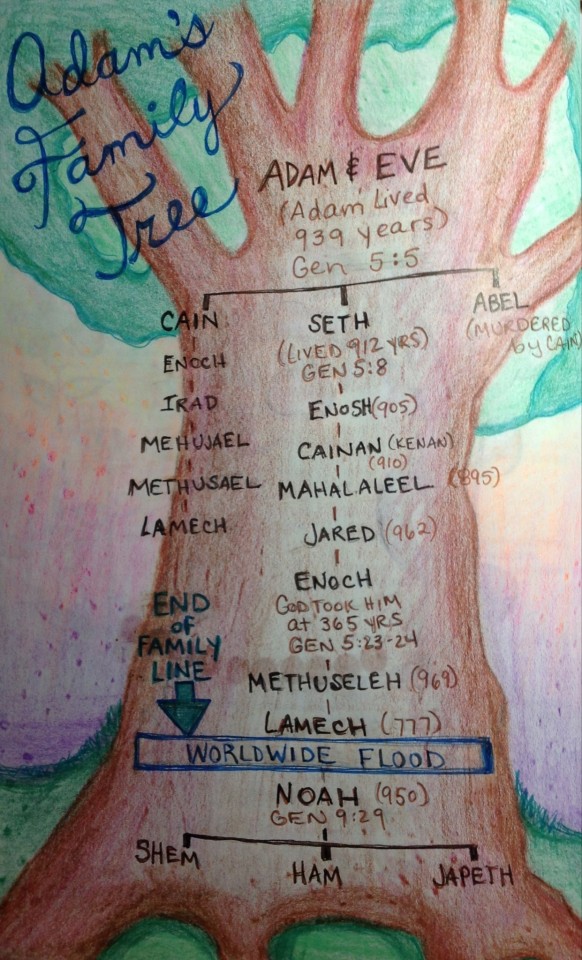
Found this on google images. Thought the drawing was pretty cool and informative as to the generations of Adam.
#eucharist#jesus#bible verse#scripture#bible#bible study#catholic#god#Enoch#seth#adam#Methuselah#Mahalalel#Cainan#jared#Lamech#ham#Shem#Japheth#adams generations
5 notes
·
View notes
Text
The Unforgiving Servant
The vast mercy, grace, and abounding chesed (lovingkindness) of our Father and King culminates in His willingness to forgive. So, as recipients of His lavish love, why do we often prefer vengeance, pay back, and punishment when wrongs have been committed against us? The parable of the unforgiving servant demonstrates this truth perfectly; and yet, I wonder if we really can see just how much we…

View On WordPress
#Cain#Counting the Omer#Erekh Apayim#forgiveness#Jonah#Lamech#longsuffering#Love#Mussar#Parable of the Unforgiving Servant#patience#Speaking the Truth in Love#The 13 Attributes of Mercy#Yom Kippur
1 note
·
View note
Text
Studies on the Book of Genesis
Studies on the Book of Genesis
The Book of Genesis is the first book of the Old Testament. Genesis is also the first book of the Pentateuch, also known as “the five books of Moses.”
The name of the book comes from the Greek word genesis (γένεσις) which means “beginning.” The Hebrew name is bereshith (בראשית), a name taken from the first word of the book; it means “in [the] beginning.”
The book of Genesis is focused on the…

View On WordPress
#Abraham#Adam#Cain#Creation#Eve#evplution#Hebrew Bible#Jacob#Joseph#Lamech#Noah#Noah&039;s Ark#Old Testament
0 notes
Text
Call Estuary Lamech "Orpheus" the way he turned around at the worst possible moment when he was so close to saving a loved one
#a rogue's legacy too#seriously Lamech you were so close! just stab the skeletons! it's not that hard!
8 notes
·
View notes
Photo





~ Baby you’re the one
You can do no wrong
You can make me
Whole Again ~
- Whole Again, Play, RePlay (June 10 2003), July 8, 2003
#Play#RePlay#Whole Again#2000s Nostalgia#2000s pop music#pop music#Faye Hamlin#Fanny Hamlin#Anais Lameche#Rosie Munter#Anna Sundstrand#Sweden#Swedish#Swedish girl group#girl group#girl groups#throwback#mine#kimicka13
18 notes
·
View notes
Text
Noah: Man Of Resolve (book review)
Title: Noah Man of ResolveAuthors: Tim Chaffey & K. Marie AdamsPublisher: Master BooksDate: 2017Pages: 296
Noah Man of Resolve (book review)
In this second book of the trilogy on the life of Noah, the authors, Tim Chaffey and K. Marie Adams, pick up the story right where the first book (Noah Man of Destiny) left off.
Noah begins to see the corruption of the world in the city in which he…
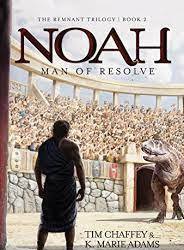
View On WordPress
#boats#choosing to follow God#Creator#Great Deceiver#Judgement#K Marie Adams#King Lamech#Master books#Nachash#Noah#Noah Man of Resolve#Persecution#Sin#Time Chaffey
0 notes
Text
Music: Lamech Jallo Tambo - Mu Yi Aniya
A sensational Gospel Music Minister from Northeastern part of Nigeria Lamech Jallo Tambo is here with a soul lifting single titled Muyi Aniya.
The song is inspired based on the book of Mathew 24:22 (New International Version) That says “Now learn this lesson from the fig tree: As soon as its twigs get tender and its leaves come out, you know that summer is near.”
Let’s get ready for Jesus’…
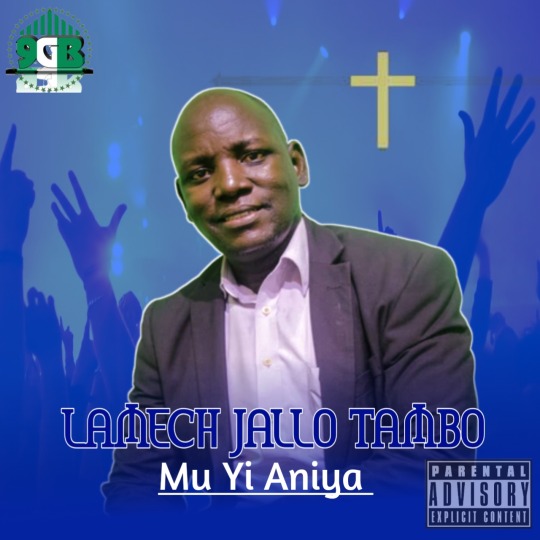
View On WordPress
0 notes
Text
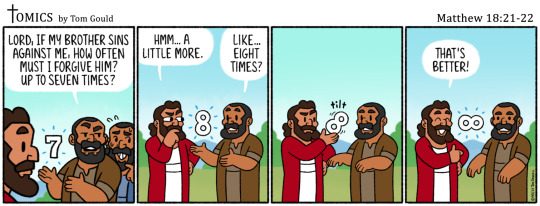
09/14/2023
For-give me a break!
____
JOKE-OGRAPHY:
1. In this story, Jesus is telling the disciples about forgiveness. He starts by telling them how to handle a sinner in their community. First, meet him alone and explain his fault. If he repents, you've won back your brother. If not, bring some friends and try again. If he still won't repent, bring in the church (the local congregation). If he still won't repent, treat him as you would a Gentile or tax-collector (that is, shun him). Essentially, an arrogantly sinful person damages their community and must be excommunicated.
2. Now Jesus has told the apostles what to do if someone doesn't repent. What if they DO repent, but then fall to sin again? Peter asks Jesus how many times they should be willing to forgive a sinner. He offers the number seven, but Jesus says, "Not seven times, but seventy-seven times." This seems to be an allusion to Lamech's boast in Genesis: "I have killed a man for wounding me, a young man for bruising me. If Cain is avenged seven times, then Lamech seventy-seven times." While Lamech uses this number to express infinite vengeance, Jesus turns it on its head and uses it to express infinite mercy. While an unrepentant sinner must be turned away until his pride yields, a repentant sinner must always be welcomed back to the fold.
3. In this cartoon, Peter makes the "seven times" suggestion, as in the Bible, but he also manifests the number seven to illustrate his suggestion, as a Sesame Street character might do. Jesus tells him it should be more than seven, so Peter, logically, suggests the next number: eight. Jesus tilts the physically manifested integer onto its side then gives His approval. The joke, dear reader, is not that Jesus is a cat Who topples things, willy OR nilly. Nay, the joke, most beautiful literate, is that an eight on its side looks like the symbol for infinity. By doing this, Jesus implies that forgiveness should be infinite. The same lesson as the Bible story, but with HUMOR.
4. This is funny.
AUTHOR'S NOTE:
Hold onto your keisters, boys and girls. The oldest of you might've recognized this cartoon. That's because it's another Tomics Resurrection, where I've breached the forbidden crypts of cartoons past, smashed open a sarcophagus, dragged its ancient denizen onto a stone altar, and chanted terrible dark words among foul-smelling candles until the old cartoon's husk twitched and cracked its way back to colorful life! How does the new compare to the old? Tell me the price was worth it! TELL ME IT WAS WORTH IT!!!

#catholic#christian#jesus#comic#cartoon#jesus memes#catholic memes#christian memes#tomics#bible#mercy#peter#st peter#apostles
444 notes
·
View notes
Text
I'm thinking about Cain with long hair
Adam is in Hell, not recognizing his son from behind and considering him a tall, beautiful female sinner: Hey, pretty girl, let's hang up?~
Cain, slowly turning around with an awkward face: I do not know if this should be considered a compliment on your part, Dad...
Adam, frozen in shock: ...listen, I always wonder: why the hell do you have long hair all the time? Do you even get a haircut sometimes?
Cain, combing his hair and braiding it into a braid: A genetic lottery, Dad, and you know who participated there. And yes, I get a haircut from time to time... Except my hair grows back pretty damn fast.
Adam, watching his son's new hairstyle: And where did you learn to braid them so beautifully?
Cain, smiling sadly: My wife taught me... plus, Noema (a descendant of Cain, the daughter of Lamech) agreed to be a training model for hairstyles.
50 notes
·
View notes
Text
Highway to Pail Day 5
[Day 1] [Prev] [Next]
@do-it-with-style-events
February 5: If you need a boat, I Noah guy.
Crawly didn't save the children.
By the time she'd talked herself into trying, it was already too late. The ark was closed and warded against demonic interference, and she didn't have the kind of power that would let her walk on water or teleport with another living thing. Her miracles could be impressive to a human, but barely registered on Hell's scales.
She watched as the corpses of the valley floated to the surface.
She saw the old man who sold oranges on the third stall from the corner in the market. Young women she'd tempted to a bit of gossip the other day. A little boy named Levi who had just turned four, and had helped his sister Sarai braid Crawly’s hair with flowers last week. A farmer named Toviyah who she couldn't tempt to adultery; she'd been reprimanded for failing that assignment a year ago. A teenager she'd tempted into stealing some food from the kitchen where he worked who had made it a habit, a good gluttony-and-greed one-two. Ayalah, the woman who had turned the temptation tables on Crowley and shown her how to drink.
An infant, born just a four days before. Babies all looked the same to her usually, but this one was born with only one arm, which is pretty distinctive. He hadn't had his bris; Leah, his mother, hadn't named him yet: she had told Crawly she been planning to call her first son Noah. No relation to the man who was apparently God's chosen; it would have been in honor of her grandfather, who'd died suddenly about two years ago. Crawly had been supposed to tempt her into disobeying him, and had wound up comforting her in her grief instead.
Why was this Noah condemned to drown while Noah ben Lamech was allowed to live? What possible sins could a baby have committed?
Crawly watched, and watched, and watched, until the corpses sank again below the waters.
She'd seen divine punishment against humans before. It hadn't happened a lot so far, but the world was still pretty young, and God had seemed to get a taste for it when She'd cast half her angelic children to Hell. But she hadn't been around the other ones much. She'd been able to shrug it off as Her capriciousness, Her cruelty, something Crawly would never be able to understand but might as well accept. What was the word that the angel Aziraphale had used? "Ineffable."
But it was different, when it was people you knew. Crawly had been living here for three years. It was her fault this time, and not just by proxy of the apple thing.
And Crawly thought that maybe, just maybe, if she hadn't dithered, she could have saved some of them. Even if only the baby Noah.
Too late.
Author's note:
My information about Jewish naming customs comes from this website. Apparently male circumcision wasn't commanded until Abraham, but since this is Good Omens I decided to be anachronistic about it.
I tried to make sure I used the Hebrew version of all names, checking with Wikipedia or Behind The Name for accuracy, but since I can't read Hebrew I can't guarantee it.
#my writing#do it with style events#highway to pail#crowley#crowley good omens#noah's ark#good omens#good omens fanfiction#edit: changed Crowley to Crawly
19 notes
·
View notes
Text
Headcanons I personally really like whilst reading upon Eden and the family of Adam and Eve.
Both the Tree of Life and the Tree of knowledge are intertwined between one another. Both their branches are almost woven in together however they are very easy to distinguish due to their colors.
Eve has long and splintered red hair which was before all of the fibers that stuck to her when she was still just a part of Adam. Her eyes are more thin, having some Asian traits as well. Like imagine the redness of a bone, that's how much skin hair was all over her until she gradually lost some parts and grew out others.
For Adam, I think his physical appearance is quite a journey, first with being molded and put inside the vessel of the dirt I feel like he would have a lot of acne, of moles and freckles to represent all the peebles and dirt he had been made from. He does a darker shade of the fertile mud from the Fertile Cresent. His hair is far more smooth but wavy. His hair is also pretty long, somewhat lighter in other ends too due to the roots of herbs being mixed in.
Lilith does share more similarities to Adam, except for the eyes and the hair. Her eyes are green. They stayed as such due to the herbs she had been created from. She has short hair, mostly for personal preference, but also because
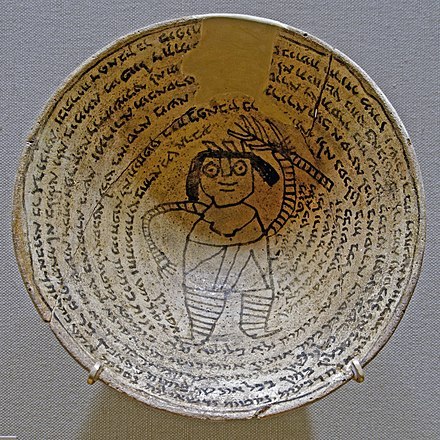
Cain has red hair as well, it's much darker compared to his mother, and his skin is like clay, low firing clay, although the sun tans him as the years go. He also has darker eyes. And he has been thought by Abel how to kill a lamb for food.
Abel has more strength out of the two which is why he hunts his food more and takes care of the cattle. He likes to carry a satchel of fruits that Cain often collected for him and Eve ever since he was young. He has a darker skin and takes a lot of traits from his father, except for the red hair. Although it is more curvy than wavy. His eyes are gray. (Alot of these are mostly headcanons that fit for symbolism of his death so like.... yeah...).
Seth has equal traits from both his parents. He has the brunette locks, a more olive skin and dark honey eyes. He also wears a more mature expression for most of the time. He somewhat likes and dislikes spending his time at The Cave of Treasures due to the corpse of his brother lingering there. He likes playing with stones or peebles. I do like to think Cain and Seth did meet st some point but the interaction became bitter when Seth noticed who he was.
Seth was mostly raised by his sisters rather than his parents.
Eve managed to live on until the day of The Deluge.
Lamech had learned slingshooting from the teachings of Seth.
Enoch liked to write a lot about the family, sadly most of it was lost to time.
Luluwa and Lilith met at some point, the angels Senoi and Sansenoi were there as well to protect her.
Adam oftened reminisced in his nightmares about his past deaths and close comings to death while surviving.
Aklia always wore layer upon layer, she used the skins of the animals to make a lot of clothes which became a small hobby of hers. Her favorite pastime was catching snakes, which her mother Eve didn't like it when she brought them inside the house.
Omg the angels braiding Eve's and Adam's hair.
#angels#adam and eve#adam#eve#abrahamic religions#abrahamic mythology#christianity#cain#abel#cain and abel#luluwa#lilith#aklia#the book of adam and eve#apocryphal#noncanonical books#mythology#headcanons#bible fandom
15 notes
·
View notes
Text
All my life I fought to fight
Now I can for once do what's right
So why when my leader says
From his tower with its sun rays
"Those void beasts, leave them unslain"
While people die from frozen rain
I turn my back in defeat
Knowing many might never eat
I disappoint the scholar
Still wearing the soldier's collar
Obey leader and our king
No matter what harm it may bring
- A poem I wrote late at night about Estuary Lamech at the collapsed bridge
4 notes
·
View notes
Text
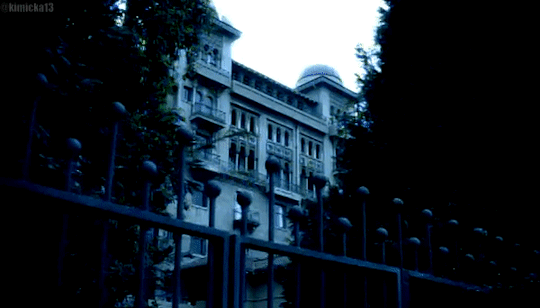





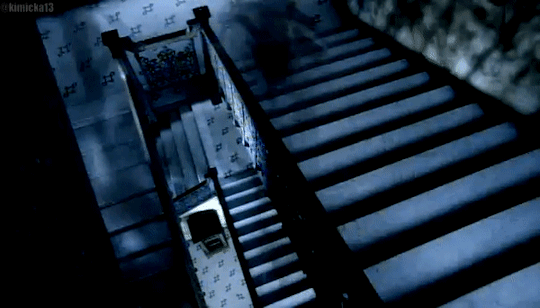


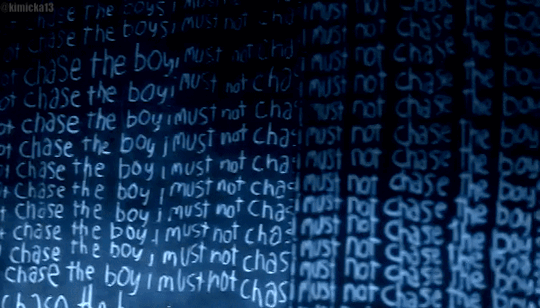


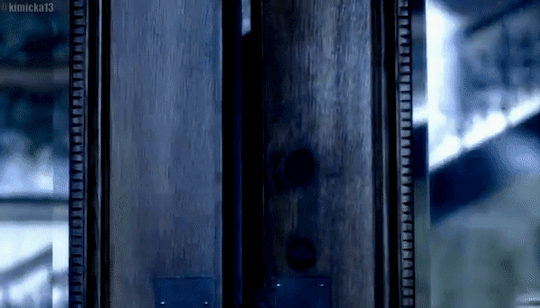
I wanna go left, but they tell me, "Go right"
(I wanna, I wanna, I wanna be)
Don't wanna be the little girl they're kissing goodnight
(I wanna, I wanna, I wanna be)
The moral of the story is I got no choice
I must not chase the boys
- I Must Not Chase The Boys, Play, RePlay (June 10 2003), April 29th 2003
#Play#RePlay#I Must Not Chase The Boys#2000s Nostalgia#2000s Pop#2000s Pop Music#Music#Pop Music#Faye Hamlin#Fanny Hamlin#Anais Lameche#Rosie Munter#Anna Sundstrand#Sweden#Swedish#Swedish Girl Group#Girl Group#Girl Groups#Throwback#10 Years#Anniversary#10 year Anniversary#mine#kimicka13
16 notes
·
View notes
Text
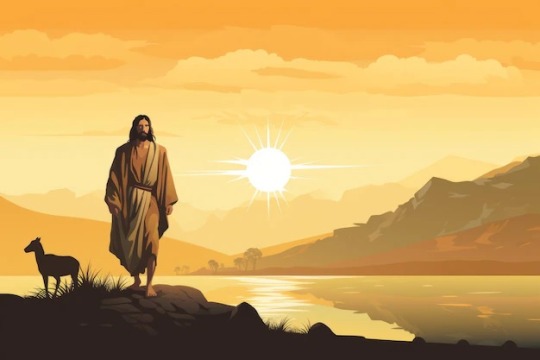
Jesus' Genealogy
21 Now it came about that when all the people had been given baptism, Jesus, having had baptism with them, was in prayer, when, the heaven being open,
22 The Holy Spirit came down in the form of a dove, and a voice came from heaven, saying, You are my dearly loved Son, with whom I am well pleased.
23 And Jesus at this time was about thirty years old, being the son (as it seemed) of Joseph, the son of Heli,
24 The son of Matthat, the son of Levi, the son of Melchi, the son of Jannai, the son of Joseph,
25 The son of Mattathias, the son of Amos, the son of Nahum, the son of Esli, the son of Naggai,
26 The son of Maath, the son of Mattathias, the son of Semein, the son of Josech, the son of Joda,
27 The son of Joanan, the son of Rhesa, the son of Zerubbabel, the son of Shealtiel, the son of Neri,
28 The son of Melchi, the son of Addi, the son of Cosam, the son of Elmadam, the son of Er,
29 The son of Jesus, the son of Eliezer, the son of Jorim, the son of Matthat, the son of Levi,
30 The son of Symeon, the son of Judas, the son of Joseph, the son of Jonam, the son of Eliakim,
31 The son of Melea, the son of Menna, the son of Mattatha, the son of Nathan, the son of David,
32 The son of Jesse, the son of Obed, the son of Boaz, the son of Salmon, the son of Nahshon,
33 The son of Amminadab, the son of Arni, the son of Hezron, the son of Perez, the son of Judah,
34 The son of Jacob, the son of Isaac, the son of Abraham, the son of Terah, the son of Nahor,
35 The son of Serug, the son of Reu, the son of Peleg, the son of Eber, the son of Shelah,
36 The son of Cainan, the son of Arphaxad, the son of Shem, the son of Noah, the son of Lamech,
37 The son of Methuselah, the son of Enoch, the son of Jared, the son of Mahalaleel, the son of Cainan,
38 The son of Enos, the son of Seth, the son of Adam, the son of God.
— Luke 3:21-38 | Bible in Basic English (BBE)
The Bible in Basic English is in the public domain.
Cross References: Genesis 4:26; Genesis 5:3; Genesis 10:24; Genesis 11:26; Numbers 1:7; Numbers 2:3; Numbers 7:17; 2 Samuel 5:4; 1 Chronicles 1:1-2; 1 Chronicles 1:24; Psalm 2:7; Isaiah 42:1; Ezekiel 1:1; Matthew 1:1-2 and 3; Matthew 1:12; Matthew 1:16; Matthew 3:13; Luke 2:25; Luke 4:1
10 notes
·
View notes